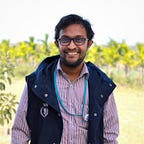Two communities and the changing canvas
A Cox’s Bazar local reflects on how the Rohingya refugee crisis has changed his community forever
Time heals everything but horrific memories that change the course of one’s life can remain forever, simmering away under the surface. Three years after fleeing violence in Myanmar and this is what people in the Rohingya community in Cox’s Bazar tell me as they recall the bitter past, but despite everything they still dream of returning to their homeland someday.
I grew up in Cox’s Bazar and I started working on the Rohingya response in 2017, shortly after refugees began crossing the border. What struck me at the start of the crisis, before I’d started working in the camps, was the way people in the two areas hosting refugees — Ukhiya and Teknaf — responded. Instead of turning their backs on the people arriving on their doorstep they offered food, water, shelter, and clothing even though many had very little to offer.
As the days, weeks, and months progressed humanitarian organizations like WFP scaled up operations to support the refugees as well as the host community who had given what little they had to refugees arriving in Bangladesh. Since my university days I have been supporting people who are experiencing tough situations, including natural disasters like floods and cyclones. After a certain period I realized that working through an organized platform like humanitarian organizations is much effective and sustainable than my personal initiatives. I still clearly remember the helpless faces of hundreds of Rohingya people on both sides of the road in Teknaf in August 2017.
They are just like us, human beings living just a border away. I was feeling like something inside me was urging me to stand beside these people. That’s why, I wanted to join the humanitarian response. I’m proud to be among those from the Cox’s Bazar district now assisting 860,000 Rohingya every month.
Working on the response has shown me how the host community of Cox’s Bazar can be at the forefront of this response. When I visited the WFP Farmers’ Market earlier this year, I could see that others from my community felt the same. I met Shikha Borua, a farmer selling her produce to Rohingya refugees who purchase it using a preloaded WFP Assistance Card. She got 15000 taka (US$175) from WFP to develop and grow crops in the gardens. With that money she began growing crops and then selling them at the WFP Farmers’ Market. Now she makes enough money to be able to ensure a good future for her kids and build a beautiful house with her savings.
A lot of women like Shikha Borua are finding opportunities such as this and writing a new chapter of life. As someone who grew up in a matriarchal family I have also been heartened to see these improvements in opportunities and empowerment for women and girls with hundreds of women in the host community finding new possibilities for better living through livelihoods and income they have control over.
It’s not only people in Cox’s Bazar who have benefitted over the past two years either with the humanitarian, host, and refugee communities undertaking a huge project to reforest the camps and surrounding areas. I remember working in the camps in 2017 and seeing the massive deforestation that had taken place to make way for shelters. It made me worried as I though about the next generation facing a world and community without a green and clean environment. Now, thousands of trees have been planted in these areas and WFP is working with the Government of Bangladesh to maintain the forest areas outside the camps too which has also created income sources for the local people.
Finally, I can’t help but mention the current situation we find ourselves in with Covid-19. As the virus began spreading in Bangladesh I was very tense thinking about Cox’s Bazar and the impact it may have on my home district. Everything changed overnight and life as I knew it ended, for now, after the first Covid-19 confirmed case was confirmed in Cox’s Bazar. It made the situation suffocating for me because there was no treatment or cure for Coronavirus. I have been heartened to see immense improvements in our local healthcare systems though with Severe Acute Respiratory Infection Isolation and Treatment Centres (SARI ITCs) being set up by humanitarian organizations to service the Rohingya and host communities. There’s also been a notable improvement in the healthcare system in Cox’s Bazar Sadar [city] by the humanitarian organizations through improvements in the emergency unit of Cox’s Bazar Sadar Hospital to ensure quality healthcare. There’s now an 18-bed ICU in the hospital for critically ill COVID-19 patients and it means a lot to me to know there are places to treat COVID-19 in Cox’s Bazar. But there’s more to COVID-19 than the health impacts, shutdowns to prevent the spread of the virus also left a lot of people penniless and struggling to put food on the table. My colleagues at WFP stepped up to the challenge and raised funds to distribute food and cash assistance to half a million vulnerable people affected by COVID-19 shutdowns.
Some changes are obvious and you notice immediately, others happen slowly over time. It’s only when you have a moment to really look back and reflect upon things that you realise how far things have come and I think that’s true here in Cox’s Bazar. It’s never going to be easy on a community to have almost one million refugees arrive on the doorstep within the space of a few months but there are ways to mitigate negative impacts and create better futures for everyone involved. I’m happy to see this being done in Cox’s Bazar and be part of it.
